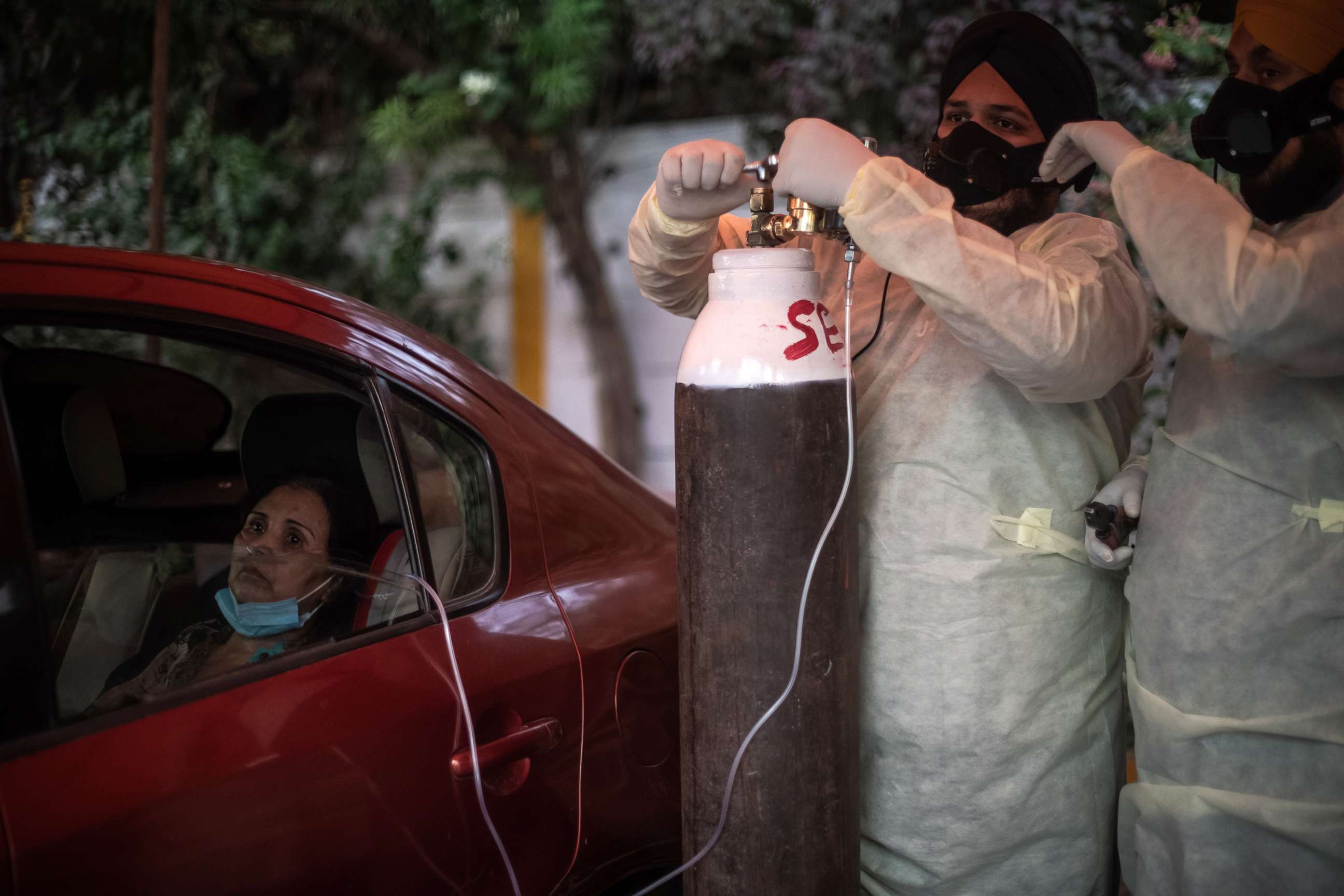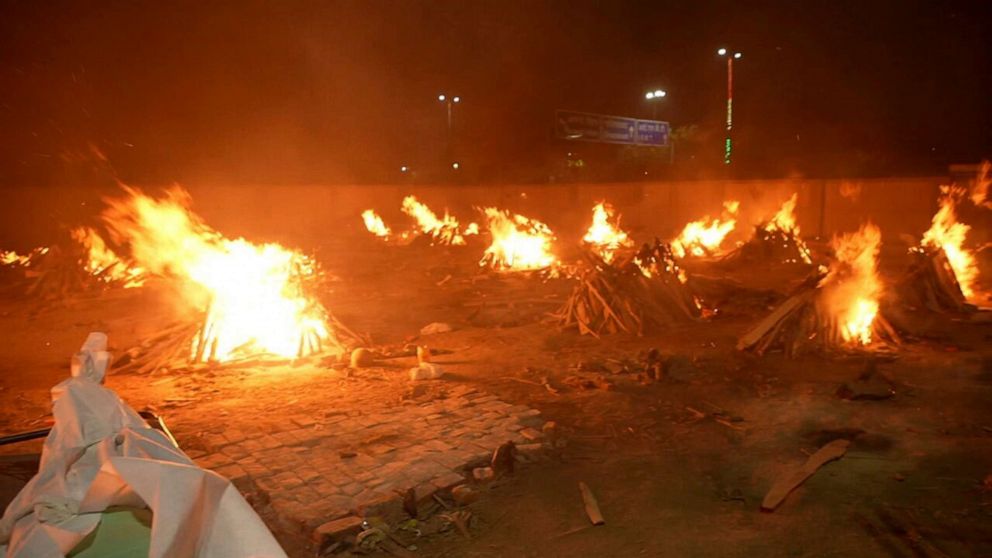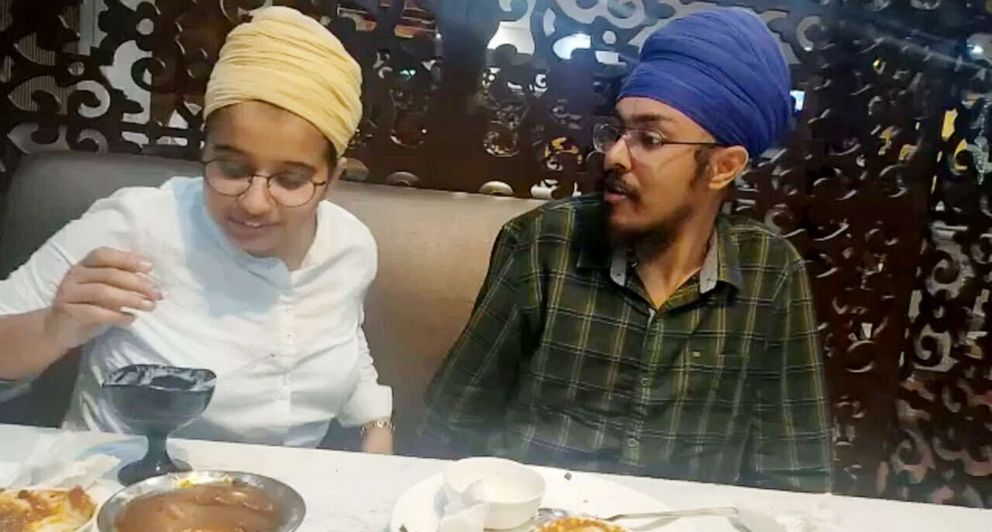Inside India's COVID-19 crisis: Makeshift clinics and constant funeral pyres
In the past day, India reported over 4,100 new COVID-19 deaths.
Newlyweds Ishaan Singh and Paramjyot Kaur wanted to take a honeymoon after their wedding, but as the death toll from COVID-19 continued to rise in India, they felt a sense of duty.
The couple from Punjab aren't medical professionals -- he works in cybersecurity and she is an engineer for IBM -- but they traveled to New Delhi to help run a makeshift hospital out of a wedding venue.
"Day and night, we are open 24/7," Singh told "Nightline." "We don't charge anything."
"We are just so satisfied that we are helping people," Kaur said. "We are ready to help anyone at any time."
The volunteers have been offering food, water and -- crucially -- scarce oxygen to those who need it as India experiences a devastating COVID-19 surge.
Other makeshift overflow clinics have been popping up in the streets of India, as the country is in the midst of a second COVID-19 wave that is crushing its medical system and overflowing its intensive care units.

In the past day, India reported over 360,000 new COVID-19 cases and over 4,100 new deaths, according to Johns Hopkins University. Experts believe those numbers are likely underreported, as COVID-19 testing is scarce.
At a crematorium in New Delhi, the funeral pyres have been burning nonstop for the past few weeks, locals said. Dozens of dead bodies have washed up on the banks of the Ganges River in eastern India in recent days, though officials said they could not confirm the cause of death.
The Institute for Health Metrics and Evaluation currently projects that India could see 1.5 million deaths from COVID-19 by September.
Dramatically ramping up COVID-19 vaccinations is key to ending the crisis in India, White House chief medical adviser Dr. Anthony Fauci told ABC "This Week" anchor George Stephanopoulos on Sunday.
So far, only about 3% of India's population has been fully vaccinated, and residents say they're having trouble getting the shot.

"Every day I have to apply, but no space," Sukhdev Singh told "Nightline." "They're totally booked."
For now, medical staff and volunteers are trying to save as many people as they can. Humanitarian aid group Khalsa Aid has received oxygen concentrators from the U.K., China and the U.S. that they're getting to desperate people in need, like Neha Suri. She told "Nightline" her husband was hospitalized with COVID-19, but had to be discharged when the hospital was unable to provide daily oxygen.
"I really feel very happy that at least I managed to be able to get the oxygen concentrator," Suri said. "Nowadays it's really very difficult. ... I'm really very happy. At least I can save my husband's life."
Newlyweds Singh and Kaur said they are passionate about helping their fellow countrymen during this crisis, despite the risks.

"Everyone is joining hands because this is a need, this is a cause of the country," Kaur said. "So everyone needs to join the hands."
The couple credits their religion for their sense of selfless service.
"I am a Sikh. I am born to die. That's just a word that I use," Singh said. "[Sikhs] have just sacrificed their lives for their humanity. And that's the whole learnings that we have got from our parents, from our religion. And that's what we are following over here. We are not afraid to die."




